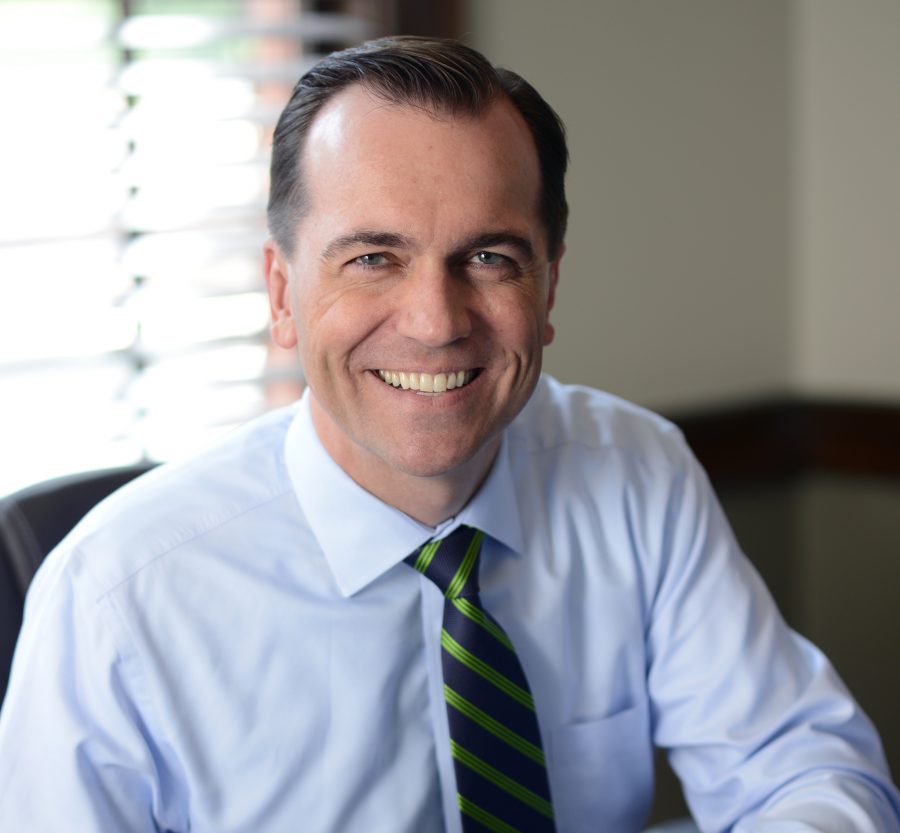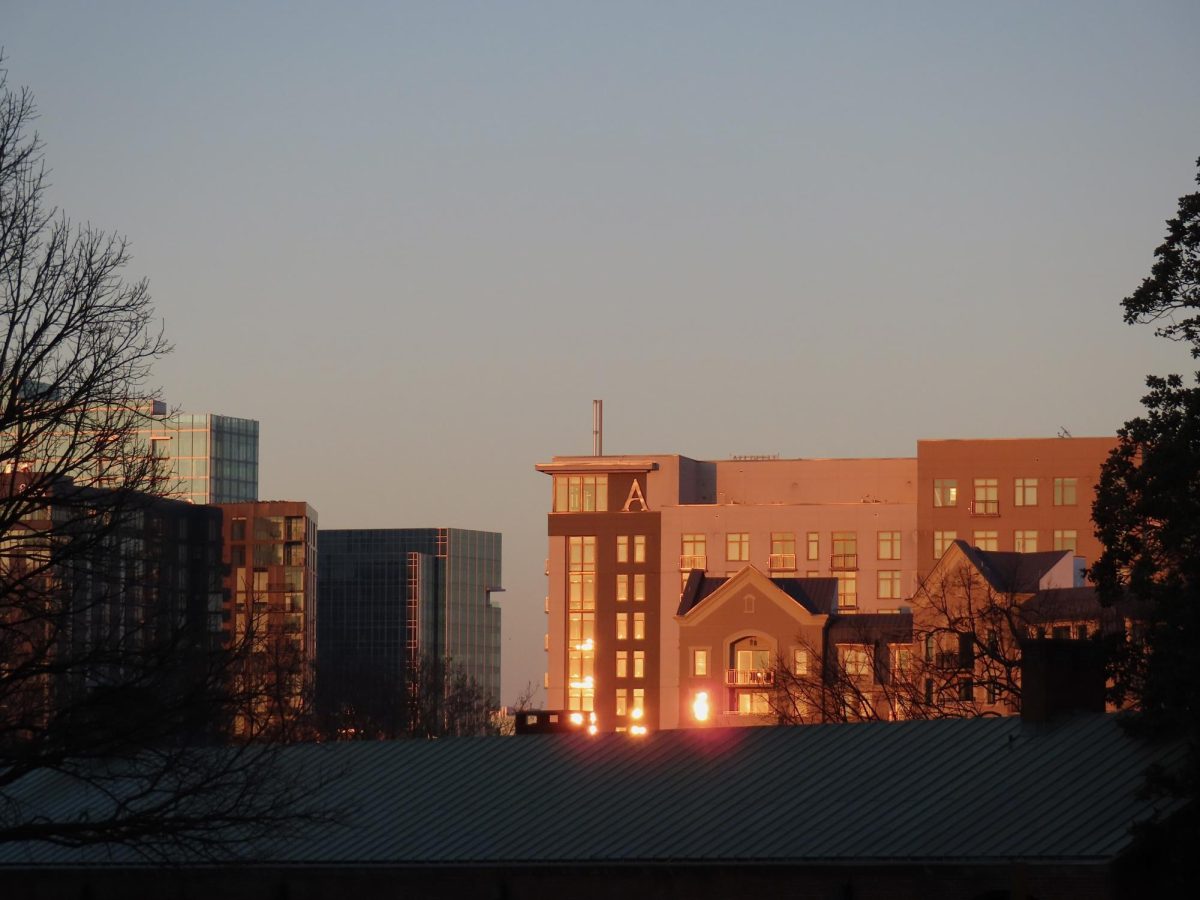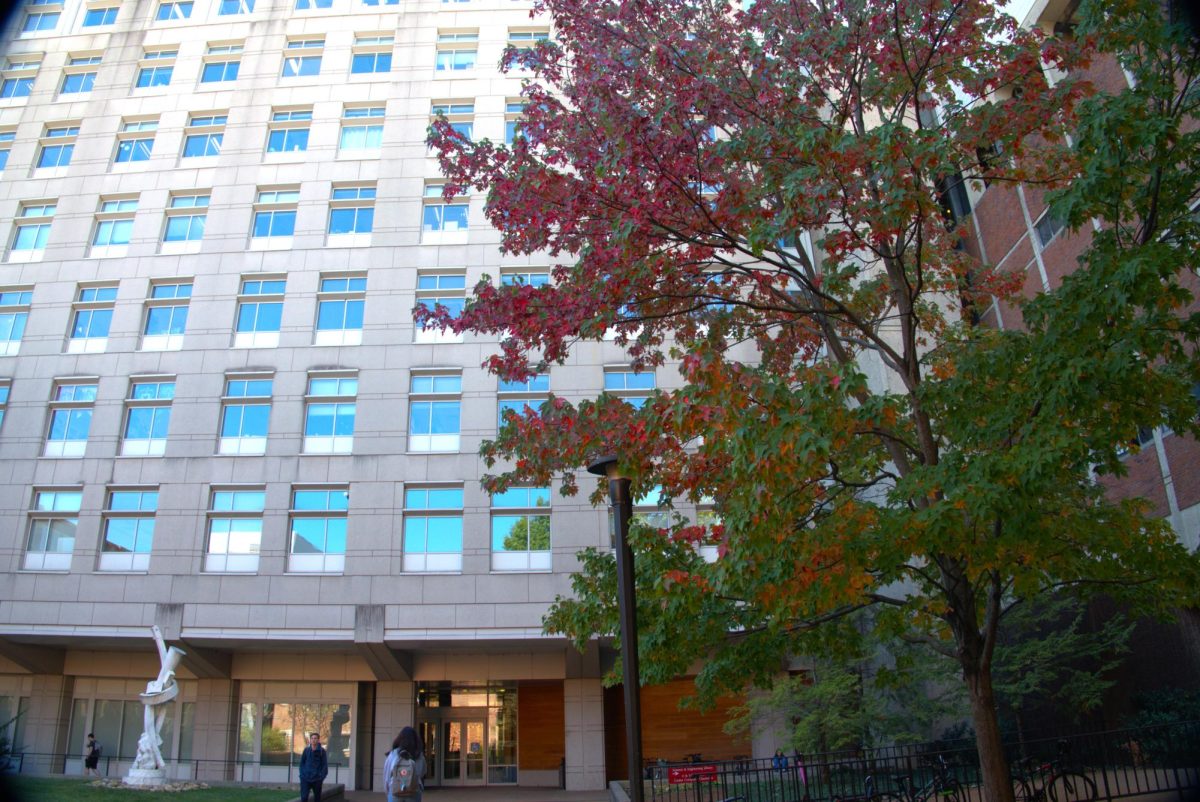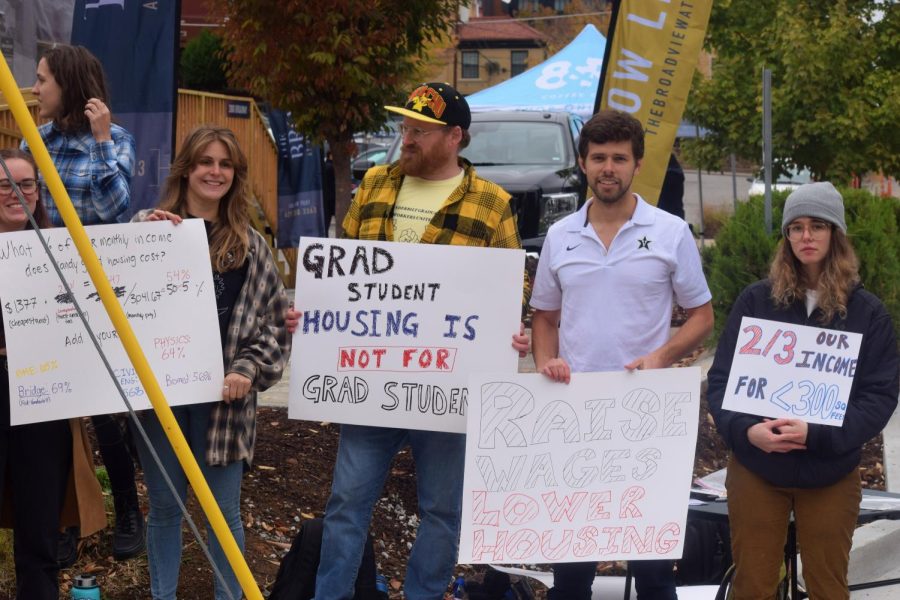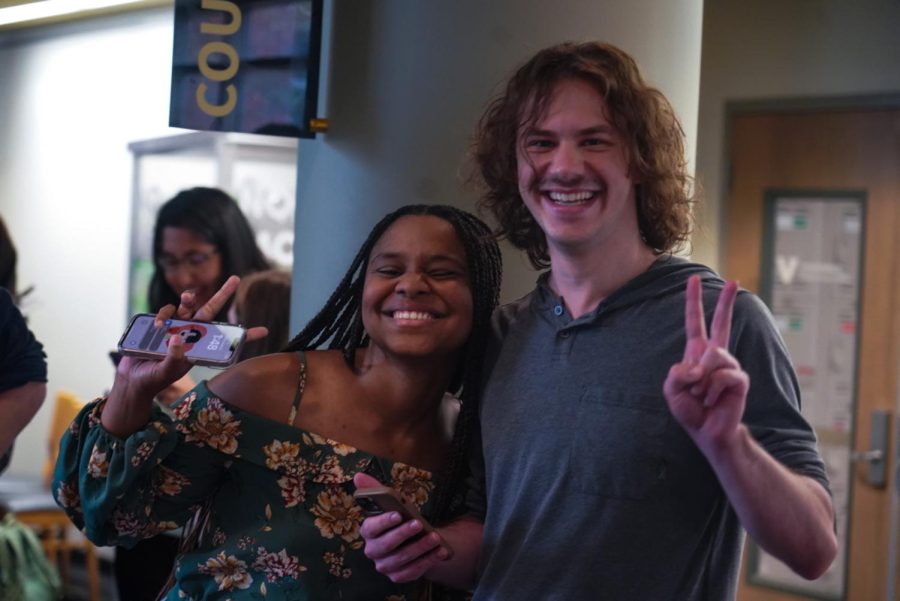State Rep. John Ray Clemmons announced his plans to run for Nashville mayor in mid-January, becoming the first candidate to challenge incumbent David Briley. Clemmons currently serves in the Tennessee State House as the District 55 representative, which includes Vanderbilt University. The Vanderbilt Hustler sat down with Clemmons to learn more about his vision for the city.
The Vanderbilt Hustler: You’ve had a good run in the state legislature, particularly as someone in the political minority. Why the move to mayor?
Rep. John Clemmons: I want to have a more direct impact on the issues. Like you said, I’ve been successful in the most difficult of environments, I think, as a Democrat in the state legislature, and especially one representing Nashville. While we’re the economic engine of the state and the locus of all things really going on in our state, we seem to be under attack. So in that difficult environment I’ve been successful, but I want to be able to have that more direct local impact and actually get things accomplished as an executive at the local level.
VH: And the state position hasn’t afforded that local connection as much?
JC: Well we’ve been able to accomplish a lot. For instance, getting I-440 redone was a success of mine. We worked across the aisle with Governor Haslam to get that infrastructure funding bill passed, the IMPROVE Act, and getting I-440 prioritized and that was a huge success. You can see it’s a direct impact and a tangible success story. But a lot of what I’ve done is creating opportunities for local governments to address their problems. I created tools for Metro to use for the purpose of addressing the affordable housing crisis, that local option in the IMPROVE Act made the transit referendum that we had last year, we made that possible. So the difference then is, from the state to local level, I’d be able to chart the course for the future of the city, not just looking at the next four year but the next forty years. [I’d be able] to directly take those tools that I created at the state legislature and work with state government to address the affordable housing crisis, build out our transit plan and pass a referendum, and focus on education and have a more direct tangible impact on those issues that make a difference in everybody’s lives across the city.
VH: You mention affordable housing, and obviously that is an incredibly big deal to Nashville and to any growing city. How do you balance the interests of rapid growth and expansion, of being the tourist hub that the city often is, with providing for our citizens and the people who built the city?
JC: First of all, we need to recognize that affordable housing is a crisis, identify it as a priority and look at it from the perspective as having a huge impact on the daily lives of too many Nashville families. We have to start by making it a budgetary priority and we have to work on balancing that. Growth is good, but it needs to be for the benefit of all Nashville families, not just a few, whether it’s a few residents or a few businesses, everybody needs to benefit from the boom. And the ways we can do that are, if we’re recruiting businesses to Nashville, then we should be asking them to invest in affordable housing for their employees, to provide living wages for their employees. All of this stuff has to be addressed holistically – you can’t talk about affordable housing without talking about transportation at the same time and without talking about wages. You have to address all of those simultaneously because it’s all part of the same equation towards improving the quality of life for Nashville families.
I think there is a balancing act that has to go on there, and we want to continue recruiting new businesses to Nashville, but we also want to continue to support and facilitate the growth of our locally owned businesses. These small businesses around the city and in all of our neighborhoods, they help make Nashville, Nashville. They provide the character of our community. And so I think there’s a balancing act to be done there as well, recruiting new businesses and jobs with good paying wages, but also working with locally owned businesses and supporting them to the extent we need, to provide jobs for everyone in every community.
Growth is good, but it needs to be for the benefit of all Nashville families.
VH: We have the Amazon Operations Center of Excellence coming, and that’s bringing a lot of jobs with it, but there’s also apprehension around whether those jobs will be going to Nashvillians, or if we’re going to have a large influx of people. How do you address those major companies that could bring jobs but also far more people?
JC: There’s several parts to that question. As far as the recruitment of these big businesses from out of the state or out of the county even, that process needs to be more open and transparent. The people of Nashville not knowing what deal is being cut behind closed doors before or after the fact is a problem, and more so because it limits our ability to hold them accountable. If we’re giving someone incentives, and they’re providing us with a promise to hire X amount of people at Y wages, then we need to be able to hold them accountable for that and there needs to be some give and take there. So that’s the first part.
The second part is we have to reevaluate the way that we recruit businesses to nashville. For so long, Nashville was begging people to move here, for lack of a better term, or trying to attract businesses. Now, like Austin and other cities, while we’re competing with them, businesses want to be in Nashville. People love Nashville, the people of Nashville are welcoming, we’re diverse, we have a lot going on in our city and these businesses want to be here. So we have to recognize that in negotiating with these businesses while we’re competing with other cities. Also, the number one factor that is stated repeatedly that businesses look at when moving to a new city is the quality of the education system and looking at the potential job applicant pool, not only when they first move here but down the road – what is the potential to hire employees in a qualified job base. So continuing to give away the farm on the property tax side has a direct and detrimental impact on the quality of our educational system because it’s primarily funded by property taxes.
We’ve got to figure out a better balance there, and we need to be asking these companies that are coming into town, if we’re going to give them incentives – which realistically incentives to some extent are always necessary because we are competing with other cities – we need to be getting promises from them, not just on numbers of employees and wages and those kinds of things, but we need to be getting them to look at who are they hiring, are they going to be investing in affordable housing for their employees are they going to be investing in creating partnerships with our public school system, are they going to be reinvesting in the community and be a good corporate citizen. Those are the types of things we really need to evaluate when we’re doing these deals, in addition to holding them accountable for any promises they make. I think that’s key.
And then the last part is, with Amazon coming to town, with any big business that’s bringing that many jobs, regardless of where the people come from, we have to recognize that creates a new, heavier burden on the infrastructure of the city. And so again, not addressing the infrastructure needs of our city, and punting that issue down the road and not taking action and not having a plan to address everything from transportation to waste water to any of these infrastructure needs of our city is completely irresponsible. We have to recognize that while it’s great to have these new businesses, that creates more demand for services and a heavier burden on our infrastructure and we have to have a plan in place and we have to have funding in place to address those needs.
VH: Last year we had the transit plan vote and it dominated city conversation for months, but ultimately it didn’t go through. Are you at all gun-shy bringing a new transit plan to the city? Is there any concern about how the city feels after the last one?
JC: No, you can’t dwell on the past, and what we have to do is focus on the future. What we know today is that if we don’t take immediate action to address the transportation infrastructure needs of not only the city but the region, Nashville’s prosperity is going to plateau. With that in mind, what is needed is strong, decisive leadership on the issue. The reality is to overcome that challenge, which we can do, that requires revenue, new revenue. We have to look at this as an opportunity to invest in our own future and our own progress, because unless Nashville and the surrounding region takes the lead and invests in our own future, the state isn’t going to invest and the federal government certainly isn’t going to invest. We need to view this as an opportunity to lead on this issue and chart the course forward, and then go to the state and the federal government to get them to join in this effort.
Right now, we’re a 21st century city with 20th century infrastructure.
VH: You mention leadership – you are challenging an incumbent mayor, granted one who came into the position under difficult circumstances – what are some of the difficulties there, and what are you contending with?
JC: Running against an incumbent mayor, there are inherent challenges there, but I think our record and the substance of our positions will separate us very clearly. Whereas he vowed not to do anything with property tax rates, where he’s vowed not to have a transit referendum for the next five years, where he has vowed not to make any changes across Metro government and he has no plans for transportation, he has no plan for improving education in the city and he says affordable housing is not a crisis, those all stand in direct contrast to my positions. I don’t think we can take any option off the table when it comes to funding. While it’s politically convenient and safe to promise not to do property tax rate adjustments, I think it’s fiscally irresponsible and I think it’s impractical. While that certainly wouldn’t be my first option, promising not to do that is irresponsible for anyone who considers themselves to be a leader.
The reality is we have to have revenue to build out a regional and citywide transportation infrastructure system that brings our city into the 21st century. Right now, we’re a 21st century city with 20th century infrastructure. That’s a real problem, and promising not to do anything about that is not what this city needs. We need strong, decisive leadership that’s going to do whatever it takes, whatever the situation demands, to address the needs of this city. I’m a public school parent, I’ve got two children in publics schools, I’ve got a third starting public school this fall– education I can assure you is near and dear to my heart, as it is every public school parent across this city. We cannot continue to underfund our school system. We have got to make sure we are adequately funding our schools so that each and every child across this city has an equal opportunity to succeed, whether they go to Julia Green or Alex Green, every child deserves that opportunity, and we have to address those issues and do what is necessary to solve those challenges that we can overcome.
VH: As Vanderbilt students, many of us are only here for four years, so at times there’s a level of inattention to our local government. What should we know and what should we be paying attention to, not only in the mayoral race but in the city in general?
JC: First of all, I’ve been proud to represent Vanderbilt in the state legislature for the last four years, into my fifth year now, and one thing that I’ve always appreciated, having worked closely with a lot of Vanderbilt students in my elected capacity, I know that Vanderbilt students are some of the smartest and most educated around. So I would like to see all those Vanderbilt students who are graduating stay in Nashville or want to stay in Nashville. But I recognize that, in order to make Nashville an attractive city for Vanderbilt graduates, we have got to address the issues facing our city. I fully recognize that anyone graduating from a top university like Vanderbilt wants to live in a city where there’s public transportation, where there’s good schools, so at some point when they raise a family, their children can go to public schools, that they will get and have access to a good job and be able to make good wages or have a good salary coming out of Vanderbilt. As someone who’s still paying off their student loans – here I am at 41 still paying off undergraduate student loans – I can fully appreciate the need to get out into the workforce and have a good paying job. We have to make Nashville an attractive city, not just Nashville but the entire region, attractive for Vanderbilt students to want to stay here. And hopefully if they do go away to graduate school, that they want to come back here, because it’s such a great city for a family. I’ve loved raising my family here, I’ve got three small boys, and it is a great family city, but we need to make it a great family city for generations to come.
Responses have been edited for clarity and length.

